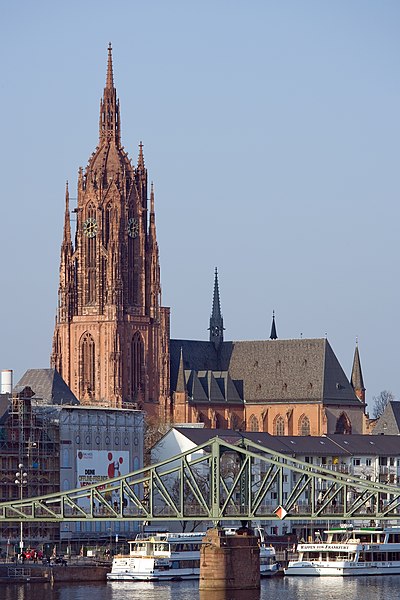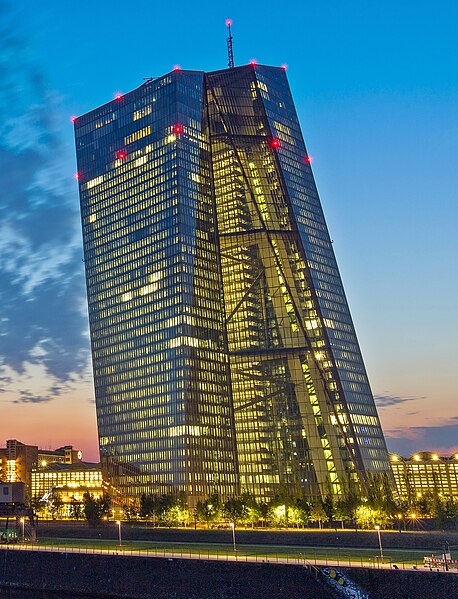Institutional seats of the European Union
The seven institutions of the European Union (EU) are seated in four different cities, which are Brussels (Belgium), Frankfurt am Main (Germany), Luxembourg (Luxembourg) and Strasbourg (France), rather than being concentrated in a single capital city. All four were chosen, among various reasons, for their location halfway between France and Germany, the countries whose rivalry led to two World Wars and whose reconciliation paved the way for European integration. The EU agencies and other bodies are located all across the union, but usually not fixed in the treaties. The Hague is the only exception, as the fixed seat of the Agency for Law Enforcement Cooperation (Europol). Luxembourg City is the EU capital that can lay claim to having the most of the seven EU institutions based wholly or partly upon its territory, with only the European Council and European Central Bank not having a presence in the city. Over the years, Brussels has become the EU's political hub, with the College of the Commissioners – the European Commission's politically accountable executive – and the European Council both meeting at their Brussels-based headquarters, and the European Parliament and Council of the EU holding the majority of their meetings annually within the city. This has led media to describe it as the de facto "capital of the EU".

The former headquarters of the High Authority in Luxembourg City
Parliament built a hemicycle in Brussels to be closer to the other institutions
In 1993 it was decided that the central bank (shown) was to be seated in Frankfurt.
Parliament's trips between Brussels and Strasbourg (image) have been criticised on grounds of democracy, cost, environmental impact, and practicality.
Frankfurt am Main is the most populous city in the German state of Hesse. Its 773,068 inhabitants as of 2022 make it the fifth-most populous city in Germany, and it is the only city in the country rated as an "alpha world city" according to GaWC. Located in the foreland of the Taunus on its namesake Main, it forms a continuous conurbation with the neighbouring city of Offenbach am Main and its urban area has a population of over 2.3 million. The city is the heart of the larger Rhine-Main metropolitan region, which has a population of more than 5.8 million and is Germany's second-largest metropolitan region after the Rhine-Ruhr region and the fourth biggest metropolitan region by GDP in the European Union. Frankfurt is home to the European Central Bank, one of the institutional seats of the European Union, while Frankfurt's central business district lies about 90 km (56 mi) northwest of the geographic center of the EU at Gadheim in Lower Franconia. Like France and Franconia, the city is named after the Franks. Frankfurt is the largest city in the Rhenish Franconian dialect area.

Image: Frankfurter Altstadt mit Skyline 2019 (100MP)
Image: Frankfurt Am Main St Bartholomaeus Ansicht von der Untermainbruecke 20110328
Image: Europäische Zentralbank European Central Bank (19190136328) (cropped)
Image: 01 01 2014 Messeturm trade fair tower Frankfurt Germany 05








